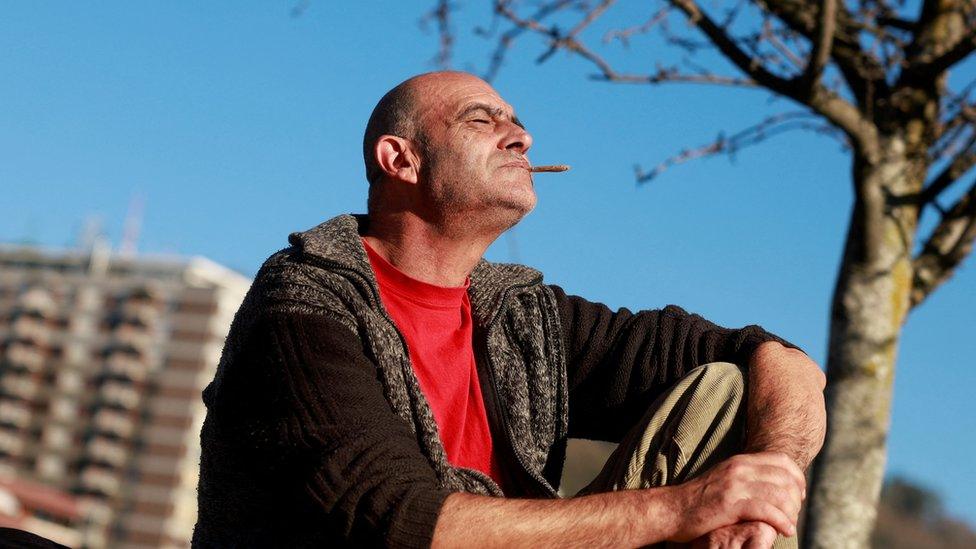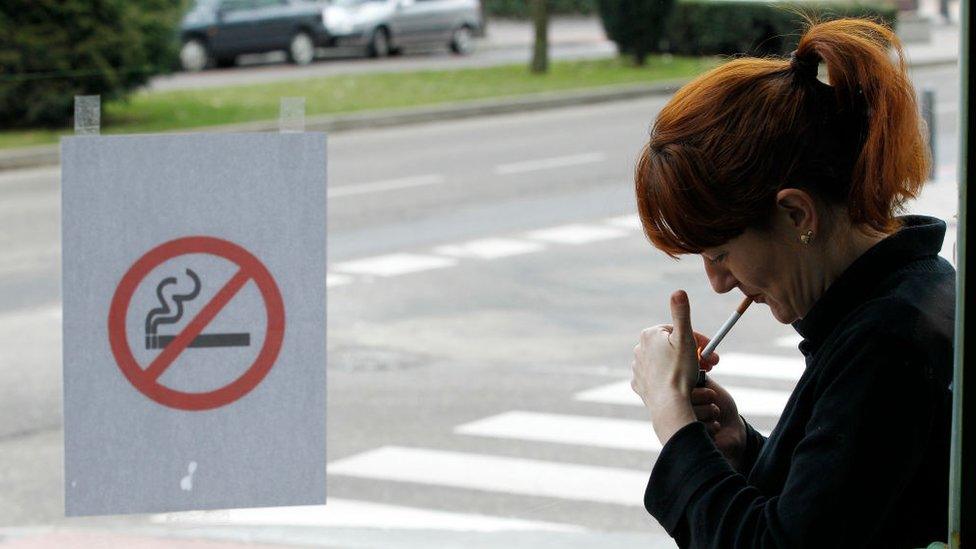Spain tobacco firms to pay to clean up cigarette butts
- Published

A study suggests cleaning cigarette butts off roads costs Catalan municipalities €18-21 per inhabitant yearly
Tobacco companies will now be charged to clean up cigarette butts off the streets and beaches of Spain, according to new environmental regulations.
Millions of butts are thrown away each year - releasing toxic plastic waste which can take decades to break down.
Figures from 2020 show around a fifth of adult Spaniards smoke everyday.
The rules came into force on Friday, but it remains unclear how they will be implemented and whether costs are likely to be passed on to consumers.
A report by the Catalan Rezero Foundation estimated that local authorities in Catalonia were paying between €12-21 (£11-19; $13-22) per inhabitant per year on road cleaning of cigarettes - with higher rates in coastal areas.
The report called cigarette waste the "most abundant waste" on the beaches of the western Mediterranean, adding that existing measures to tackle it - such as awareness campaigns and portable beach ashtrays - had been insufficient.
The new rules make manufacturers responsible for collecting discarded butts as well as transporting them for waste treatment.
The Mesa del Tabaco industry association has said it is still waiting for details on how the rules will be implemented, local media say.
Most cigarette butts contain filters made of cellulose acetate fibre, a type of a bioplastic.
These can take years, if not decades, to break down - and microplastic pollution can hamper plant growth too, according to scientists.
The new rules are part of a law passed last year banning single-use plastics like cutlery and straws - drawn up to comply with a European Union directive.
Ireland introduced similar legislation on Thursday, requiring tobacco companies to contribute to the cost of cigarette litter.
Almost half of litter in Ireland is cigarette-related, according to the country's National Litter Pollution Monitoring System.
Spain has introduced a host of sweeping measures to curb smoking in recent years. Last July, smoking was banned on all of Barcelona's public beaches, with offenders fined €30 (£27; $32).
- Published11 February 2020

- Published13 August 2020

- Published2 January 2011